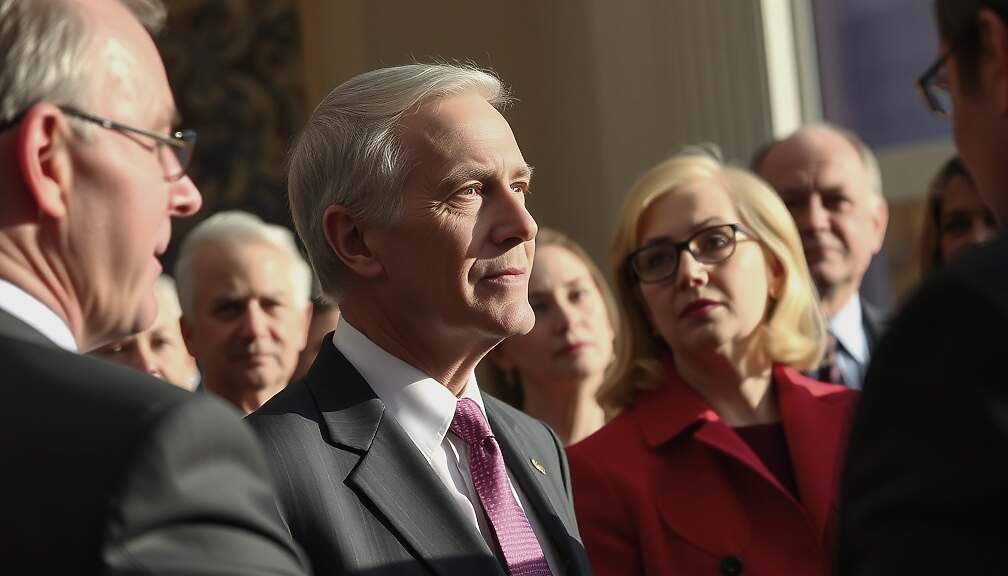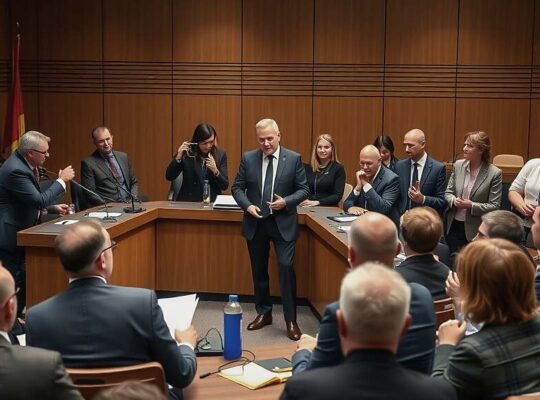The internal power dynamics within the freshly formed “Die Bewegungen Soziale Freiheit” (BSW) party are sharpening, with Thuringia’s Deputy Minister-President Katja Wolf publicly endorsing Sahra Wagenknecht’s potential reappointment as party leader. Speaking at a Tagesspiegel conference on Tuesday, Wolf emphasized the crucial role Wagenknecht plays as a “mediatic and identifying rock in the surf” highlighting her unique ability to connect with the public and solidify the party’s image during this formative period.
Wolf’s endorsement comes amidst speculation about Wagenknecht’s future leadership and underscores the perceived need for a strong, recognizable figure to guide the young party. While acknowledging the ongoing “growing pains” – likened by Wolf to a somewhat “pubescent” phase – she expressed a degree of composure regarding the internal conflict, suggesting that the situation would naturally resolve itself.
However, Wolf simultaneously distanced herself from assuming greater responsibility within the national party structure, citing a paramount obligation to restore trust within Thuringia, where she holds significant political office. “We have a real responsibility in Thuringia to win back trust” she stated, dismissing any suggestion that such responsibility was merely a political platitude. She stressed the importance of demonstrating the viability of cross-party coalitions and actively working to improve the state.
Perhaps most notably, Wolf reiterated her controversial stance on potential collaboration with the far-right Alternative für Deutschland (AfD). She firmly argued that categorical exclusion of AfD proposals is unnecessarily restrictive. “If, at some point, an AfD motion comes along that is politically sound, I don’t think it should cause us any discomfort to agree to it” she asserted, advocating for a cautious yet pragmatic approach to engagement with the AfD, a policy sure to fuel debate within BSW and beyond. This willingness to entertain cooperation with a party often accused of extremism represents a significant and potentially divisive element within BSW’s burgeoning political strategy, raising concerns about the party’s broader political alignment and its potential impact on the German political landscape.












